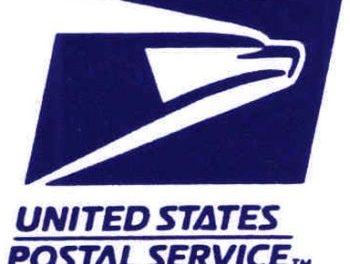
Why the postman can't deliver profits
Why the postman can't deliver profits.(U.S. Postal Service)(Brief Article)(Company Profile)
From U.S. NEWS & WORLD REPORT, April 9th, 2001
COPYRIGHT 2001 Information Access CompanyBy Lavelle, Marianne That extra penny you've been paying for a postage stamp since January hasn't
made a dent in the deteriorating finances of the U.S. Postal Service. After
five years of operating at a surplus–helped by a booming economy–the
quasi-governmental mail agency has plunged as much as $3 billion into the red,
its greatest deficit in modern history. The post office, if it is to survive, needs to remake itself. It plans some
quick fixes, like a new rate increase it will likely seek this summer and
halting some 800 capital investment projects. But the USPS's long-term
health–and that means the take-it-for-granted right to universal mail
service–is in jeopardy. In the increasingly competitive delivery market,
postal officials say they must be able to operate more like a business–to
change prices quickly, offer volume discounts, and add services. They might
even surrender the agency's status as a federal government monopoly. Their
ideas, to be aired at a hearing this week before the House Committee on
Government Reform, face strong opposition from competitors and customers
alike. The old way isn't working. The USPS warned long ago that its core business
was threatened by E-mail and online bill paying. And indeed, a recent slowdown
in first-class mail has hit hard, while cheap advertising mail has filled
letter carriers' bags. That combination hurts two ways: Revenues fall short of
projections while costly deliveries are up. Way up: The USPS must deliver its
ever less profitable mix of mail to 2 million added addresses every year. Its
workforce has grown with its workload, to more than 900,000–the
second-largest U.S. civilian labor force after Wal-Mart's. Labor costs eat up
76 percent of its revenues, compared with only 56 percent at United Parcel
Service and 42 percent at FedEx Corp. Even its Washington ties can be a burden. Three quarters of post offices lose
money, but Congress has barred the agency from closing any outposts.
Handcuffed in its cost-control efforts, the service resorts to rate increases.
But the Postal Rate Commission rejected much of the business mail rate hike
the USPS had sought. To raise rates again, the agency faces an extended
hearing process. "It is not good business to take up to two years to be able
to change your prices in response to the marketplace," says Deborah Willhite,
a USPS senior vice president. The post office is asking Congress for power to raise rates more quickly and
to offer periodic sales on services (low-priced stamps during the slow summer
season?) and markdowns to high-volume mailers such as department stores. The
service would also like freedom to copy competitors in the package
market–bundling services like financing and billing along with delivery–and
to expand its online efforts beyond the bill-paying service it now offers.
Ideas include electronic postmarks and enhanced change-of-address service. Tax break. Direct marketers and other businesses that live and die by mail
balk at the idea of giving the Postal Service more power. They say that the
service should get labor costs under control instead. Competitors argue that
their rival already enjoys too many advantages as a government monopoly,
albeit one that receives no direct taxpayer funding. "We are very concerned
[they] will willingly undercut the competition, and lose money, in order to
gain volume," says UPS spokesman Tad Segal. Electronic commerce companies say
they can't compete against a behemoth that pays no taxes and enjoys
low-interest loans from the treasury. It's no wonder that the drumbeat is growing for privatizing the Postal
Service, or at least opening the door for competition. But no one expects
competitors to flock to money-losing routes, especially in rural America. The
Cato Institute's Edward Hudgins, a privatization advocate, acknowledges that
free-market postal service might be leaner: "Is there some universal human
right for a person who lives on a mountaintop in West Virginia to send mail to
someone who lives on a mountaintop in Alaska?" Actually, the USPS doesn't
deliver all the way to the summit of Alaska's Mount McKinley. The post office
box is at the base in Talkeetna, population 772. Postal plunge The U.S. Postal Service expects a $3 billion shortfall this year. [Complete chart data are not available.] Net income (in billions)
1990 -$874 mil. '95 $1.8 bil. '01 -$3 bil. Source: U.S. Postal Service Page 46;Volume 130;Issue 14 THIS IS THE FULL TEXT: COPYRIGHT 2001 U.S. News and World Report, Inc. COP
YRIGHT 2001 Gale GroupU.S. NEWS & WORLD REPORT, 09th April 2001













